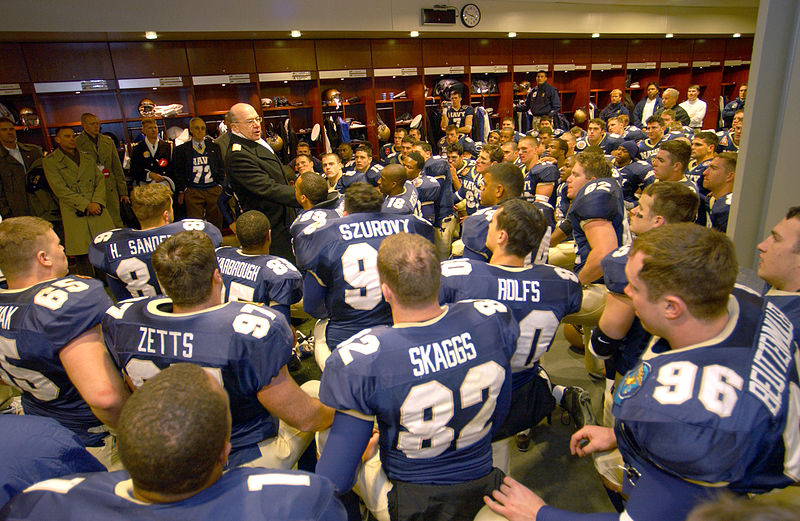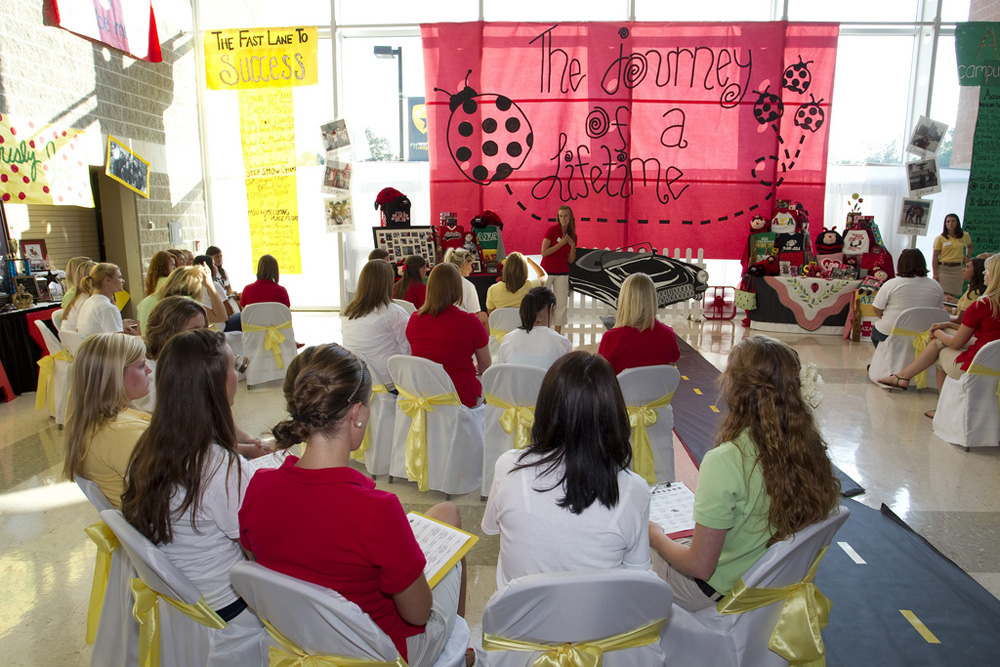| << Chapter < Page | Chapter >> Page > |

A reference group is a group that people compare themselves to—it provides a standard of measurement. In U.S. society, peer groups are common reference groups. Kids and adults pay attention to what their peers wear, what music they like, what they do with their free time—and they compare themselves to what they see. Most people have more than one reference group, so a middle school boy might look not just at his classmates but also at his older brother’s friends and see a different set of norms. And he might observe the antics of his favorite athletes for yet another set of behaviors.
Some other examples of reference groups can be one’s cultural center, workplace, family gathering, and even parents. Often, reference groups convey competing messages. For instance, on television and in movies, young adults often have wonderful apartments and cars and lively social lives despite not holding a job. In music videos, young women might dance and sing in a sexually aggressive way that suggests experience beyond their years. At all ages, we use reference groups to help guide our behavior and show us social norms. So how important is it to surround yourself with positive reference groups? You may not recognize a reference group, but it still influences the way you act. Identifying your reference groups can help you understand the source of the social identities you aspire to or want to distance yourself from.

For a student entering college, the sociological study of groups takes on an immediate and practical meaning. After all, when we arrive someplace new, most of us glance around to see how well we fit in or stand out in the ways we want. This is a natural response to a reference group, and on a large campus, there can be many competing groups. Say you are a strong athlete who wants to play intramural sports, and your favorite musicians are a local punk band. You may find yourself engaged with two very different reference groups.
These reference groups can also become your in-groups or out-groups. For instance, different groups on campus might solicit you to join. Are there fraternities and sororities at your school? If so, chances are they will try to convince students—that is, students they deem worthy—to join them. And if you love playing soccer and want to play on a campus team, but you’re wearing shredded jeans, combat boots, and a local band T-shirt, you might have a hard time convincing the soccer team to give you a chance. While most campus groups refrain from insulting competing groups, there is a definite sense of an in-group versus an out-group. “Them?” a member might say. “They’re all right, but their parties are nowhere near as cool as ours.” Or, “Only serious engineering geeks join that group.” This immediate categorization into in-groups and out-groups means that students must choose carefully, since whatever group they associate with won’t just define their friends—it may also define their enemies.
Groups largely define how we think of ourselves. There are two main types of groups: primary and secondary. As the names suggest, the primary group is the long-term, complex one. People use groups as standards of comparison to define themselves—both who they are and who they are not. Sometimes groups can be used to exclude people or as a tool that strengthens prejudice.
How has technology changed your primary groups and secondary groups? Do you have more (and separate) primary groups due to online connectivity? Do you believe that someone, like Levy, can have a true primary group made up of people she has never met? Why, or why not?
Compare and contrast two different political groups or organizations, such as the Occupy and Tea Party movements, or one of the Arab Spring uprisings. How do the groups differ in terms of leadership, membership, and activities? How do the group’s goals influence participants? Are any of them in-groups (and have they created out-groups)? Explain your answer.
The concept of hate crimes has been linked to in-groups and out-groups. Can you think of an example where people have been excluded or tormented due to this kind of group dynamic?
For more information about cyberbullying causes and statistics, check out this website: (External Link)
Cooley, Charles Horton.1963 [1909]. Social Organizations: A Study of the Larger Mind . New York: Shocken.
Cyberbullying Research Center. n.d. Retrieved November 30, 2011 ( (External Link) ).
Hinduja, Sameer, and Justin W. Patchin.2010. “Bullying, Cyberbullying, and Suicide.” Archives of Suicide Research 14(3): 206–221.
Khandaroo, Stacy T. 2010. “Phoebe Prince Case a ‘Watershed’ in Fight Against School Bullying.” Christian Science Monitor , April 1. Retrieved February 10, 2012 ( (External Link) ).
Leibowitz, B. Matt. 2011. “On Facebook, Obamas Denounce Cyberbullying.” (External Link) , March 9. Retrieved February 13, 2012 ( (External Link) ).
Occupy Wall Street. Retrieved November 27, 2011. ( (External Link) ).
Schwartz, Mattathias. 2011. “Pre-Occupied: The Origins and Future of Occupy Wall St.” New Yorker Magazine , November 28.
Sumner, William. 1959 [1906]. Folkways . New York: Dover.
“Times Topics: Occupy Wall Street.” New York Times. 2011. Retrieved February 10, 2012 ( (External Link)&sq=occupy%20wall%20street&st=cse ).
We Are the 99 Percent. Retrieved November 28, 2011 ( (External Link) ).

Notification Switch
Would you like to follow the 'Introduction to sociology 2e' conversation and receive update notifications?